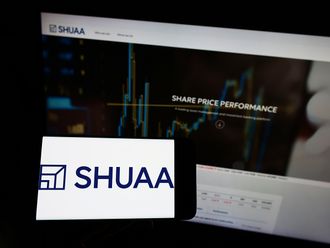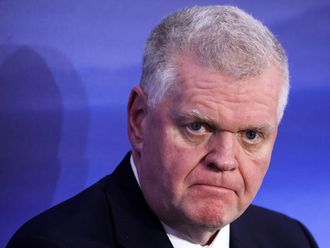Bahrain : Bahrain is monitoring concern over the viability of the euro, said Shaikh Mohammad Bin Eisa Al Khalifa, Chief Executive of the country's Economic Development Board.
"It is still a long-term goal and the concept is still in our sights, but we are watching as the euro goes through a crisis," Al Khalifa said at an International Institute for Strategic Studies conference in Bahrain according to an email statement. "What we need in the Gulf is a currency with sound fundamentals."
Saudi Arabia, Kuwait, Qatar and Bahrain took an initial step on March 30 toward a single currency when their central bank governors held the first meeting of the Monetary Council, a precursor to a united central bank.
Kuwait's dinar is pegged to a basket of currencies while the other three countries have a peg to the dollar. A unified central bank will give the Gulf states control over monetary policy which is now dictated by the Federal Reserve, Al Khalifa said.
"Should stresses in Greece or elsewhere prolong concern about the viability of the euro then this could trigger a rethink within the GCC," Paul Gamble, head of research at Riyadh-based Jadwa Investment Co., said in a May 8 report.
The Gulf Cooperation Council is a six-member political and economic bloc that includes the UAE and Oman, which have both pulled out of the currency union. The European Central Bank model has been used as a guide for the Gulf states on technical issues and policymakers have received advice from the Frankfurt-based bank, according to Jadwa.
Gulf countries agreed on a single currency in 2001, saying it would help integrate their economies, and the original timetable would have seen the new monetary unit in place this year. The deadline was missed after the financial crisis and the UAE and Oman pulled out.
Central bank governors of the four countries will meet again at the end of this month.
Saudi Central Bank Governor Mohammad Al Jasser is the first chairman of the council, which must draft a road map for a plan that Kuwait says may take a decade to complete. Bahrain was given the deputy role.
Lowest level
The euro last week fell to its lowest level since the collapse of Lehman Brothers Holdings Inc. on concern that the 16-nation currency may be headed for disintegration. The shared currency fell for a fourth week versus the dollar and a third week versus the yen, the longest losing streaks since February, as German Chancellor Angela Merkel said that Europe is in a "very, very serious situation" even after a rescue package for the region's most indebted nations.












